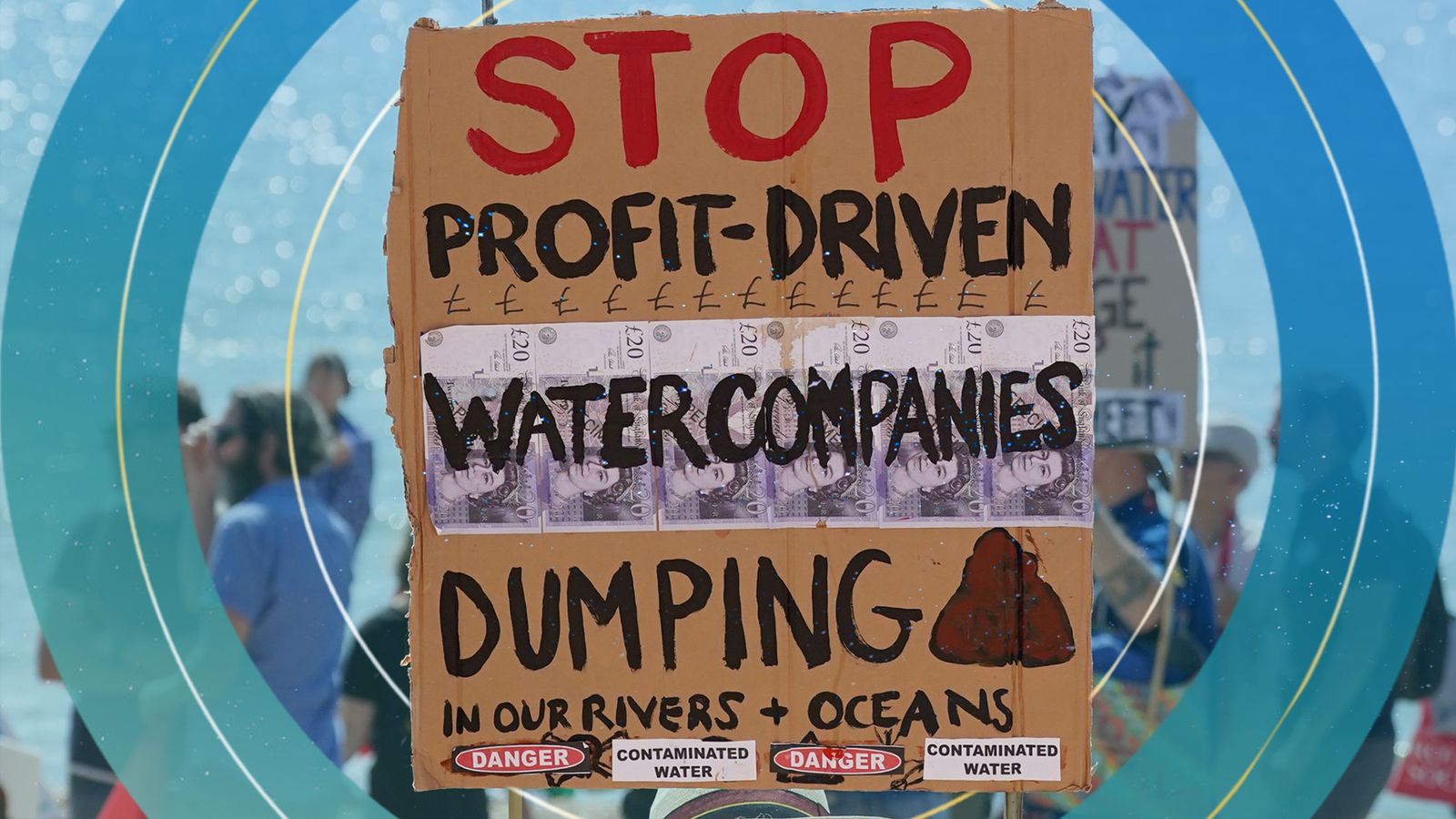The new crackdown on sewage spills fails to protect the majority of England’s coastline, the Marine Conservation Society is arguing, as it takes legal action against the government’s plan.
Protests popped up at English beaches this summer as many were forced to close in high season after raw sewage had been dumped nearby.
But the environment department’s plan to limit releases into waterways covers only bathing areas in England’s seas and almost entirely excludes the rest of its coastal waters.
This puts public health and nature at risk, the charity and its co-claimants the Good Law Project say.
The plans will mean water companies can still release untreated sewage including faeces, tampons, wet wipes, viruses and chemicals into most conservation areas.
Raw sewage poured into protected waters for more than 260,000 hours in 2021 – the equivalent of more than 30 years – according to MCS data.
There are an estimated 1,600 storm overflows on England’s coast and 600 of them will never be included in the strategy, “which means they’re going to be able to completely legally continue to dump untold amounts of sewage into the into the sea,” MCS chief Sandy Luk said.
The charities want the government to rewrite its Storm Overflows Discharge Reduction Plan 2022 so that targets to kick in years earlier than planned. The plan already requires water companies to deliver £56 billion of capital investment over 25 years to tackle storm sewage discharges.
The ocean charity also warns the aim to reduce spills by 80% is too lenient.
“What should be happening is that those overflows… really are only for those exceptional [rainfall] events,” Ms Luk told Sky News.
Please use Chrome browser for a more accessible video player
The “cocktail of pollutants that is in sewage and that is spilling into the sea through those overflows” should be treated at source to prevent them spilling into the sea, she said.
“People end up in hospital when they swim in sewage… Sewage pollution is impacting marine life from seagrass to seabirds,” she said.
Less than half England’s coastal waters achieved “good ecological status” and none had a “good chemical status” according to government statistics.
Emma Dearnaley, legal director at the Good Law Project, said the legal case will “put forward the case for more ambitious and urgent measures to reduce sewage discharges by water companies.
“These sewage spills are threatening human health, biodiverse marine life and the fishing industry.”
The environment department declined to comment on the prospective legal proceedings, but is understood to be concerned about the impact of more ambitious plans on household bills.
Ms Luk said you have to “look at the cost to society and the cost to human health and the cost to marine life that’s being caused by this pollution. And that’s huge.”
Watch the Daily Climate Show at 3.30pm Monday to Friday, and The Climate Show with Tom Heap on Saturday and Sunday at 3.30pm and 7.30pm.
All on Sky News, on the Sky News website and app, on YouTube and Twitter.
The show investigates how global warming is changing our landscape and highlights solutions to the crisis.









